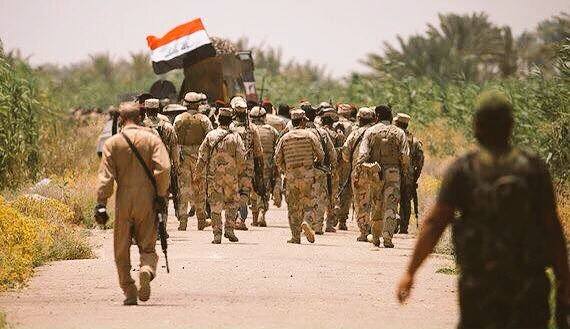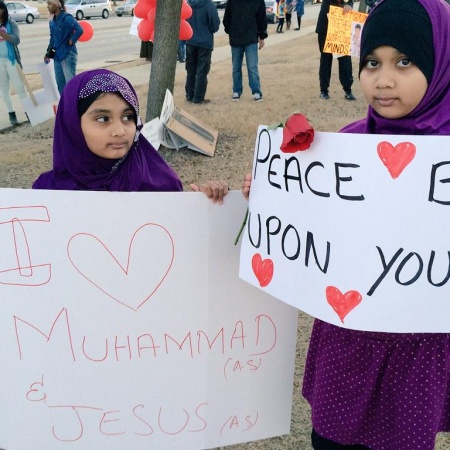Fighting for Fallujah: What You Need to Know

By Soura A., community submission
The battle for liberation of Fallujah, Iraq from ISIS has commenced with the Iraqi government urging civilians to leave. The Popular Mobilization Unit, the voluntary Iraqi forces, along with the Iraqi army have been a key part of the mission to retake Fallujah. This is a primer about the Iraqi city and the current state of affairs.
Fallujah is tough and complicated
Fallujah is known, especially in Iraq, to be one of the most stubborn of all Iraqi cities. The people of Fallujah have refused to kneel down to anyone–from rising against the British colonizers to the U.S. occupation and even, to its own government–they have succeeded in this resilience. Along with its stubbornness, Fallujah is notorious for being an Al-Qaeda stronghold and more sympathetic to Sunni extremist armed groups. Abu Musab al-Zarqawi, the late Jordanian Al-Qaeda leader, started a vicious and bloody campaign against foreigners and especially Shia Muslims. He ordered endless waves of suicide bombings, car bombings, kidnapping, and beheadings. Giving Fallujah’s close proximity to Baghdad, Baghdad saw multiple daily bombings with thousands being killed every month.
However, no narrative is that simple.
Being the center of violence and extremists, Fallujah has been in an endless cycle of unrest. In most recent news, after months of anti-government protests, the demonstrations gradually became violent and the government responded harshly to the protestors. Nobody has really ever sought to improve the lives of the residents and each side, ISIS and the government, is forcing the people of Fallujah to choose a side. Some tribes reject both ISIS and the government seeing them as self-interested. Others sided with ISIS and others are fighting alongside the Iraqi government. Many have chosen not to fight but flee to safe havens. Unfortunately, mistrusted by their neighbors, many Fallujans were not welcomed in areas like the northern Kurdish Iraq.
Fallujah did not fall to ISIS
Fallujah had already been the fertile ground for Al-Qaeda since the U.S. occupation and the fall of Saddam Hussein. ISIS emerged from the roots of the already strong presence of Al-Qaeda in the town.
The battle for Fallujah could last anywhere from weeks to months, possibly a year
Depending on how ISIS fights and resists the Iraqi army’s offensive, the length of the battle is still a mystery. ISIS has shown to either launch counteroffensives or flee Iraqi security forces. The real battle has actually not begun yet. The Iraqi forces are still not inside the central part of the city. They have managed to surround Fallujah and enter the area clearing out explosives and booby traps set by ISIS. Further news reports will be detailing the army’s progress.
No, an all out sectarian war is not going to erupt
Yes, there are sectarian tensions in Fallujah. However, to label the battle for Fallujah as the start of a fierce sectarian bloodbath is troubling. Not only does it feed into the dangerous narrative of Sunni-Shia hatred in Iraq, but it will overshadow the plight of the suffering civilians. And most importantly, it is a disturbing oversimplification of the true reality on the ground. So far 3,700 people have managed to escape the city with the help of the volunteer militia, the Popular Mobilization Unit (PMU). Many people fear that the PMU will carry out revenge attacks and looting against the people of Fallujah. Sectarian narratives have started to pour out that the Shias of the PMU will rape, kill, and loot the Sunni residents. However, nothing can be further from the truth.
Firstly, the Popular Mobilization Unit is not only compromised of Shia fighters. The majority of the fighters are Shias, but there are large numbers of Sunni fighters. The main goal is liberating ISIS controlled cities and protecting communities. Secondly, Sunni displaced residents have sought safe haven in Shia cities like Najaf and Karbala in Southern Iraqi–cities dominated by Shia Muslims. Falling into sectarian mistrust and hate overshadows the plight of the people looking only to build a bright future for themselves and their family. Sectarian hatred and division has left the country in turmoil. After many years of dictatorship, two failed wars (Iran and Kuwait), U.S occupation, bloody sectarian conflict, and continuing political corruption, the future of the country depends on the unity and coexistence of all religions, race, ethnicities, and sects. Sectarian narrative has been used as a tool to divide and destroy–the situation in Fallujah will not be the exception.
ISIS support is on the decline
ISIS deceived people with their so-called “liberation” from government discrimination and reviving the Sunni power against the rise of the “Iranian power” in Iraq. However, civilians living under ISIS have reported unbearable living conditions. ISIS systematically destroys the cities and communities they take over, ruining the livelihood and future of the people. As the Iraqi army have started gaining the upper hand last year, ISIS members have become even more desperate in maintaining its prized possessions, Mosul and Fallujah. Their desperation is evident in the rounding up of hundreds of men for fighting, executions of petty crimes, and the appalling treatment of the civilians. Further reports have shown that ISIS has even used residents of Fallujah as human shields. Losing Fallujah is heartbreaking for ISIS. It is the town that they found great support and sympathy. However, the support crumbled when the basic rights of people were violated and families could barely find the means to buy simple necessities. Under ISIS rule, food became unaffordable and the price of just 50kg of flour sky-rocketed to over $700. People were forced to eat rotten dates and yogurt. The residents are very frightened of what could ISIS could do to the civilians if the fighting intensified. They have reported that members of ISIS have grown to be very angry over the lack of support and shouting insults at the people in the streets.
What is next?
The defeat of ISIS in Fallujah will be the turning point in the war against ISIS. ISIS would be severely weakened and the only major city left to liberate would be Mosul, its de facto capital in Iraq. A post-liberated Fallujah is the next challenge. Giving Fallujah’s history, it’s important to understand its extremist and jihadist impulse and provide employment, education, and build infrastructure for the residents–basically, there needs to be an alternative to all the madness that Fallujah has succumbed to over the years. First and foremost, security must be strong. The tribe chiefs must work with government to prevent Fallujah from falling and/or becoming into another jihadist capital. Establishing security forces compromised of Fallujan residents affiliated with the government will provide a system of checks and balances. Also, it will reduce sectarian sensitivities toward the Shias comprising most of the Iraqi army and security forces.
Moderate Islam must be promoted through the tribal chiefs. Extremist ideology is far more dangerous than the extremist terrorist–as we have seen through the poisonous beliefs of ISIS. Keep an eye out for updates on the battles for the liberation and democracy of Fallujah and keep the freedom fighters in your prayers for a victory from the hands of ISIS.
18-23

















2016
1,264 views
views
1
comments